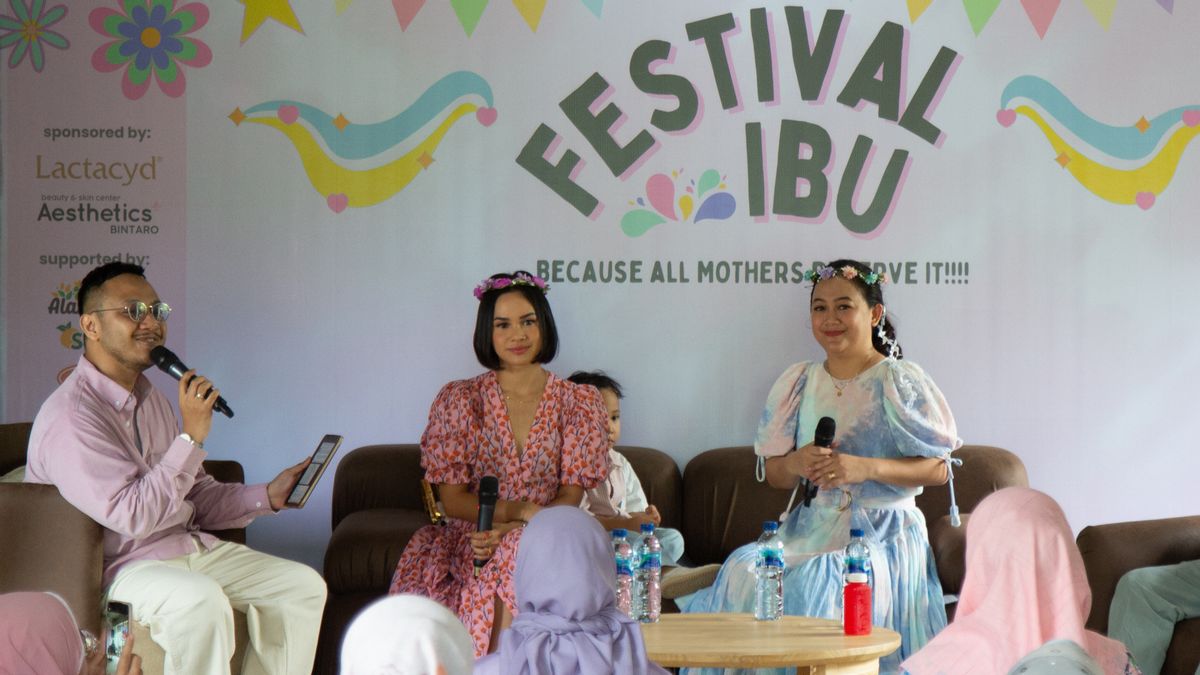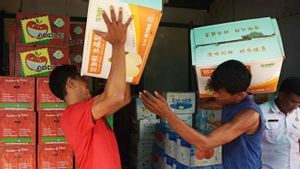JAKARTA Mother's mental health is a major public health challenge for a country. WHO 2022 data shows that 1 in 5 women experience mental disorders during pregnancy until one year after giving birth.
Pregnant women are a group that is prone to mental health disorders due to various hormonal, physical, and psychological changes that occur during pregnancy to childbirth. Support for mothers is important because it will have an impact on children's growth and development, family mental health in general, and most importantly the mother's own mental health.
Mother's mental health issues are an important focus for Halo Mother, a women's empowerment community that focuses on women's mental health. In order to welcome Mother's Day in December, Halo Mother held the Mother's Festival, which this year raised mental health awareness, especially for mothers after delivery.
Psychological and emotional support is not only needed by mothers during pregnancy. Even after giving birth, mothers still need support from those closest to them. Communities that are present for their mothers and families. After giving birth, a mother needs space to tell stories because there is a process of changing the role they are experiencing. After giving birth and no longer pregnant, it is natural for mothers to be sad. Because something is missing from her, she is not the same woman," said Founder of Halo Ibu, Ashtra Dymach, quoted in a statement released by VOI, Saturday, December 9.
Ideally, father is a figure who plays a big role as a support system for mothers. The contribution of people around mothers, especially fathers, is very much needed to maintain their mental health.
One of the experts present at the Mother's Festival, Obygn Specialist at the Tembuni Birth Center, dr. Ridwan, SpOG said that the role of the husband and closest family is needed to support maternal psychology and health during pregnancy until the day of childbirth.
SEE ALSO:
The pregnancy period should not be borne unilaterally by the mother, but the husband also acts as a companion who is always on standby and gives full support to the mother. According to dr. Ridwan, the importance of supporting husband and family in the stage of pregnancy and childbirth in mothers contributes to preventing the occurrence of baby blues to postpartum depression (PPD) in mothers.
Support from the husband and closest family is the most dominant risk factor contributing to the occurrence of baby blues to PPD which is prone to approaching the mother. Prior to this, preventive measures were needed, such as involving husbands in providing information about the health of mothers and children, as well as anticipating early detection of baby blues to PPD with the quality of patient information extraction (anamnesis), so as to reduce the number of postpartum blues events, "added dr. Ridwan.
Dr. Ridwan further explained, there are many things that can be done by the husband and his family around him to support pregnant women, such as accompanying them in undergoing health care to helping do household work. However, it can also start with simple things that can be done by those closest to you, such as asking how the mother is. Although the answer will feel standard at the beginning, slowly the mother will release all the elements. He no longer harbors the pain.
The English, Chinese, Japanese, Arabic, and French versions are automatically generated by the AI. So there may still be inaccuracies in translating, please always see Indonesian as our main language. (system supported by DigitalSiber.id)













